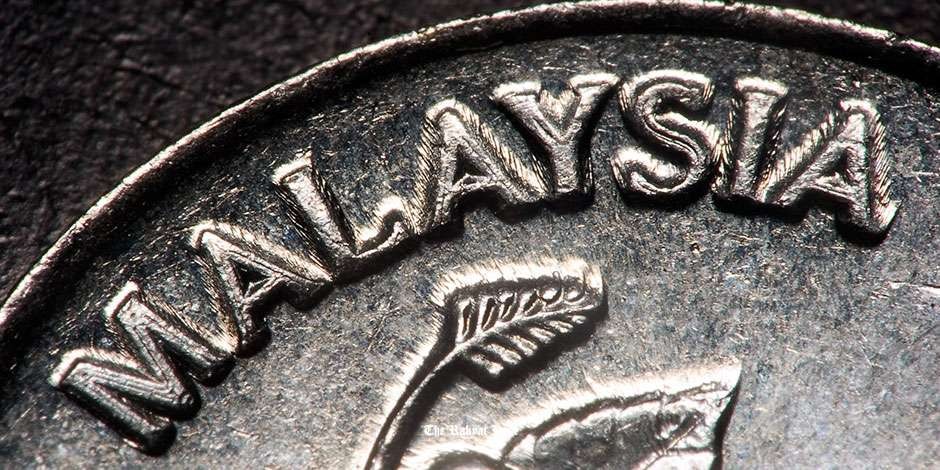News & Articles Ringgit strengthens on yuan gains
Ringgit strengthens on yuan gains
16 Feb 2016

Most emerging Asian currencies rose today after China’s central bank set its daily yuan guidance rate sharply firmer, easing concerns over risks of devaluation, and as regional stock markets clawed back some of their recent heavy losses.
The ringgit advanced 1% to 4.1270 against the US dollar in thin trading as a rebound in crude prices eased concerns over Malaysia’s falling oil and gas revenues.
The Malaysian currency rose after oil prices on Friday jumped more than 10% and also found further support from demand against the neighbouring Singapore dollar.
The yuan had jumped more than 1% to 6.4900 per US dollar – its firmest this year – as the People’s Bank of China (PBOC) set its daily midpoint 0.3% stronger before the market open. It was the official fixing’s biggest rise since Nov 2.
The Taiwan dollar hit a near six-week high, tracking the renminbi’s strength.
China’s exports and imports in January fell more than expected, but emerging Asian currencies focused more on Beijing’s stabilisation efforts for now, analysts said.
In an interview over the weekend, PBOC governor Zhou Xiaochuan said there was no basis for the yuan to keep falling, and China would keep it stable versus a basket of currencies while allowing greater volatility against the US dollar.
“The weak export growth could add more speculation to CNY weakness,” said Nordea Markets’ senior analyst Amy Yuan Zhuang in Singapore, referring to the yuan.
“But I still believe that Zhou Xiaochuan’s comments during the weekend and today’s strong fixing rate helped alleviating some of the pressure on the CNY, at least temporarily. And so the same for Asia FX.”
Thailand’s baht, however, fell as quarterly economic growth in the last three months of 2015 came in slightly weaker than expected.
The baht slid as traders unwound bullish bets on growing caution over possible intervention by the central bank to stem its appreciation.
Thailand’s economy grew 0.8% in October-December last year from the previous three months on a seasonally-adjusted basis, less than the 1% in July-September and the 0.9% expected in a Reuters poll.
Government bond prices fell, adding to pressure on the currency.
The ringgit advanced 1% to 4.1270 against the US dollar in thin trading as a rebound in crude prices eased concerns over Malaysia’s falling oil and gas revenues.
The Malaysian currency rose after oil prices on Friday jumped more than 10% and also found further support from demand against the neighbouring Singapore dollar.
The yuan had jumped more than 1% to 6.4900 per US dollar – its firmest this year – as the People’s Bank of China (PBOC) set its daily midpoint 0.3% stronger before the market open. It was the official fixing’s biggest rise since Nov 2.
The Taiwan dollar hit a near six-week high, tracking the renminbi’s strength.
China’s exports and imports in January fell more than expected, but emerging Asian currencies focused more on Beijing’s stabilisation efforts for now, analysts said.
In an interview over the weekend, PBOC governor Zhou Xiaochuan said there was no basis for the yuan to keep falling, and China would keep it stable versus a basket of currencies while allowing greater volatility against the US dollar.
“The weak export growth could add more speculation to CNY weakness,” said Nordea Markets’ senior analyst Amy Yuan Zhuang in Singapore, referring to the yuan.
“But I still believe that Zhou Xiaochuan’s comments during the weekend and today’s strong fixing rate helped alleviating some of the pressure on the CNY, at least temporarily. And so the same for Asia FX.”
Thailand’s baht, however, fell as quarterly economic growth in the last three months of 2015 came in slightly weaker than expected.
The baht slid as traders unwound bullish bets on growing caution over possible intervention by the central bank to stem its appreciation.
Thailand’s economy grew 0.8% in October-December last year from the previous three months on a seasonally-adjusted basis, less than the 1% in July-September and the 0.9% expected in a Reuters poll.
Government bond prices fell, adding to pressure on the currency.
Source: Therakyatpost.com
Latest Posts
-
Gong Xi Auction Fair Draws Strong Interest from Both First-Time and Experienced Buyers
-
Gong Xi Auction Fair: Start the Lunar New Year with Smart Property Investments
-
Highest Bidder Strikes Gold at NCM Co November Auction Carnival 2025
-
November Auction Carnival 2025 Returns — Nearly 600 Properties Up for Grabs!
-
SkyWorld raih emas pertama di Anugerah ESG The Edge Malaysia 2025